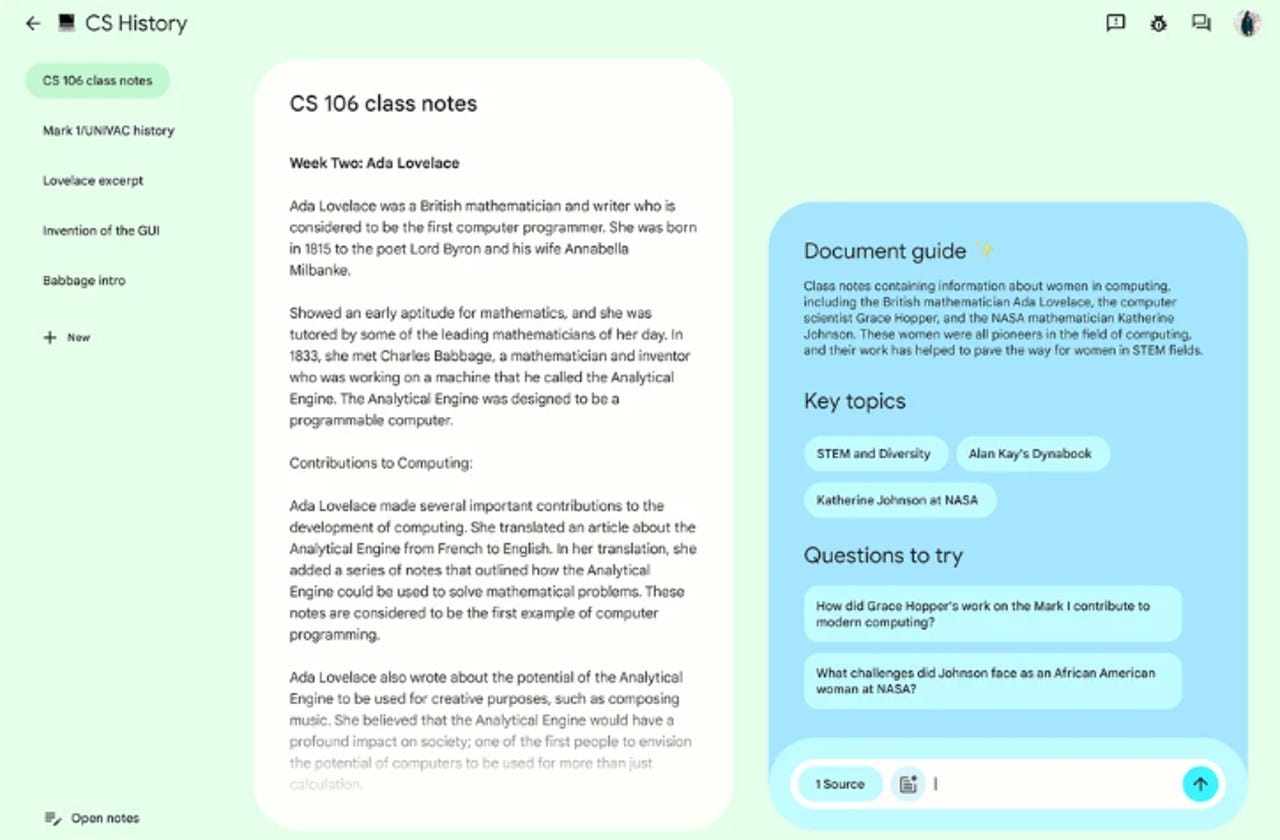Google Labs rolls out its ‘AI-first notebook’. Here’s what it can do and how you can try it

Google has embraced AI and hit the ground running. This is evident with Google's rapid launch of its own chatbot, Google Bard. Now, the tech giant is expanding its AI offerings with the launch of its ‘AI-first notebook‘.
NotebookLM is Google's take on notetaking software that keeps a language model at its core. Instead of a typical chatbot, this software works with the content you already have and uses AI to further deepen your understanding of the content.
Also: Google Bard is stepping up its AI game with these new features
“A key difference between NotebookLM and traditional AI chatbots is that NotebookLM lets you ‘ground' the language model in your notes and sources,” says Google.
For example, when you drop a Google Doc into NotebookLM, it will automatically generate a summary of the document and provide you with key topics and questions you can ask to better understand the material.
You can also ask NotebookLM questions about the uploaded documents, prompting it to generate a glossary of key terms for you, a summary of specific aspects of the document, and more.
If you upload a pitch deck, you can also ask it to generate potential questions for investors. Or, if you are a content creator, you can share video ideas and ask it to create a script for your video, according to the release.
Also: Google tests its new AI medical chatbot at Mayo Clinic
NotebookLM is an experimental product built by a small team at Google Labs. The team has the intention of testing it and learning from people about how to refine the technology before rolling it out further. Currently, NotebookLM is being tested with a small group of users in the US. If you're interested, you can join the waitlist.
This technology was initially announced at Google I/O under the name Project Tailwind as part of Google's many AI announcements. Today, Google launched some Google Bard features that were also announced at Google I/O, such as using images in Google Bard prompts.

